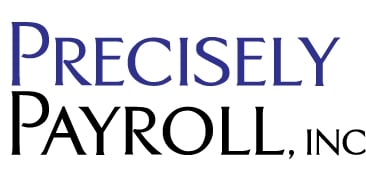The ebb and flow of seasonal demand can be a double-edged sword for small business owners. While increased customer traffic can boost sales, it also necessitates hiring additional staff. This is where seasonal employees play a crucial role, filling in the labor gaps during peak periods. However, understanding the tax implications for these workers is essential to ensure compliance and avoid potential pitfalls. If you’re a small business owner or employer of seasonal staff, here’s what you need to know about managing taxes effectively.
Seasonal Employment and Its Importance to Small Businesses
Seasonal employment serves as a lifeline for many small businesses, particularly those in tourism, agriculture, and retail sectors. With fluctuations in demand, having a flexible workforce allows businesses to scale operations up or down as needed. This adaptability is pivotal for maintaining customer satisfaction and optimizing resources.
Small business owners often turn to seasonal employees to meet increased workloads during specific times of the year. Whether it’s managing holiday rushes or harvest seasons, these workers provide essential support. However, hiring seasonal staff comes with its own set of challenges, particularly concerning payroll and taxes.
Understanding how taxes apply to seasonal workers is vital for small business owners. By ensuring compliance with tax regulations, employers can avoid penalties and focus on delivering exceptional services and products. In this blog post, we’ll explore the nuances of taxing seasonal employees, providing valuable insights for small business owners.
Understanding the Basic Tax Obligations for Employers of Seasonal Workers
Hiring seasonal employees involves satisfying several tax obligations, which differ slightly from those for full-time staff. First and foremost, employers must obtain an Employer Identification Number (EIN) from the IRS. This number is necessary for filing tax returns and other related documents.
One primary tax obligation is withholding federal income tax from employee wages. Employers must also contribute to Social Security and Medicare taxes, collectively known as FICA taxes. These contributions are crucial as they fund employee benefits in the future.
Additionally, employers are responsible for paying federal unemployment taxes (FUTA). Although seasonal workers are typically temporary, they may still qualify for unemployment benefits under certain conditions. Complying with these tax obligations is critical for maintaining smooth operations and avoiding legal issues.
Federal Tax Implications for Seasonal Employees Key Points and Rates
Federal taxes play a significant role in seasonal employment. Employers must withhold federal income tax based on employee W-4 forms. These forms help determine the correct amount of tax to withhold, considering factors such as marital status and number of dependents.
Social Security and Medicare taxes, or FICA taxes, are equally important. Both employers and employees contribute to these taxes, which are calculated as a percentage of employee wages. Currently, the Social Security tax rate is 6.2%, while the Medicare tax rate is 1.45%. Understanding these rates allows employers to accurately calculate and remit taxes.
Finally, employers must address federal unemployment taxes (FUTA). Although the FUTA tax rate is 6% on the first $7,000 of each employee’s wages, most employers receive a tax credit of up to 5.4%, resulting in an effective tax rate of 0.6%. Complying with these federal requirements ensures employers remain in good standing with tax authorities.
State Tax Considerations Variations Across States and How to Navigate Them
While federal tax obligations are relatively uniform, state taxes can vary significantly. Employers must familiarize themselves with their state’s tax laws to ensure compliance. Most states impose state income tax, requiring employers to withhold the appropriate amount from employee wages.
State unemployment taxes are another area of concern. These taxes fund unemployment benefits for eligible workers and vary in rate and wage base across states. Employers should contact their state’s unemployment insurance agency for specific details and requirements.
Some states also impose additional taxes, such as disability insurance or workers’ compensation. It’s essential to understand these obligations and incorporate them into your payroll processes. Consulting with a local tax professional or using a payroll service like Precisely Payroll in Bend, Oregon, can simplify navigating state tax complexities.
Special Cases Part-Time Seasonal Employees, Student Workers, and Non-Resident Aliens
Certain categories of seasonal employees require special consideration. Part-time seasonal employees, for example, may have different tax withholding requirements compared to full-time staff. Employers must accurately classify these workers to ensure proper taxation.
Student workers often have unique tax situations as well. They may qualify for reduced tax withholding through exemptions or reduced Social Security and Medicare taxes. Employers should consult IRS guidelines to determine eligibility and ensure compliance.
Non-resident aliens, such as foreign students or temporary workers, pose additional tax challenges. These individuals may be subject to different tax treaties or withholding rates. Employers must carefully assess each worker’s situation to determine the correct tax treatment, seeking guidance from tax professionals if needed.
Strategies for Managing Seasonal Employee Taxes Compliance Tips and Best Practices
Effective management of seasonal employee taxes requires strategic planning and attention to detail. One best practice is maintaining accurate records of employee earnings, tax withholdings, and payroll contributions. These records facilitate tax filings and help resolve disputes.
Employers should also review and update employee information regularly. Changes in marital status, dependents, or part-time status can impact tax withholding and require adjustments. Regular communication with employees ensures accurate tax reporting.
Finally, leveraging technology and automation can streamline payroll processes. Payroll software or services like Precisely Payroll can simplify tax calculations, filings, and compliance. By integrating these solutions into your operations, you can focus on growing your business while ensuring tax compliance.
Navigating Seasonal Employee Taxes in Bend, Oregon
Navigating the complexities of seasonal employee taxes is crucial for small business owners. By understanding federal and state tax obligations, employers can ensure compliance and avoid potential penalties. Special cases, such as student workers and non-resident aliens, require extra attention to detail.
Employers can benefit from adopting best practices, such as maintaining accurate records and updating employee information. Utilizing technology and automation can further simplify tax management and streamline operations.
For small business owners in Bend, Oregon, seeking assistance with payroll and tax compliance, Precisely Payroll offers tailored solutions. By leveraging expert guidance and innovative tools, you can focus on what matters most—growing your business.

